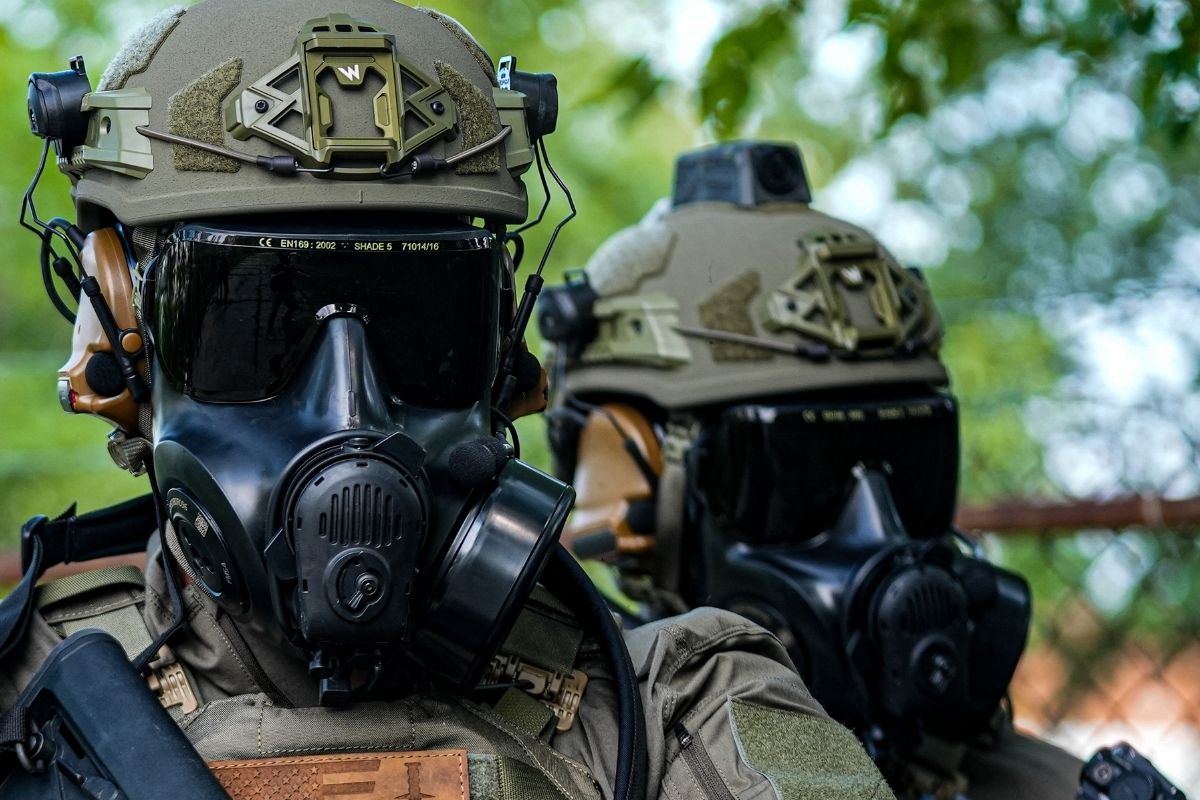Certified to Protect: Why NIOSH-Approved Gas Masks and Filters Matter

If you're unfamiliar with protective equipment like gas masks or air-purifying respirators (APRs), it’s easy to feel overwhelmed by technical terms and acronyms. There can be a lot to consider when worrying about your own safety and what you’re protected against. One of the most important things to understand early on is this: certifications matter.
But why should you care if a gas mask is “NIOSH-approved” or “CE-certified”? Let’s break it down:
What Is NIOSH?

Image credit: NIOSH logo, public domain, via Wikimedia Commons
NIOSH stands for the National Institute for Occupational Safety and Health. It’s a U.S. federal agency under the Centers for Disease Control and Prevention (CDC) that’s responsible for researching and making recommendations to prevent work-related injury and illness.
When it comes to respirators and gas mask filters, NIOSH sets strict testing and certification standards. If a respirator is NIOSH-approved, it means the product has passed rigorous testing to ensure it meets specific safety, performance, and reliability criteria. These tests look at things like filtration efficiency, breathing resistance, fit, and the ability to function under a variety of different environmental conditions.
In the U.S., NIOSH certification is seen as the gold standard. It's directly tied to OSHA (the Occupational Safety and Health Administration), which enforces workplace safety regulations. If you're working in an industrial setting where respiratory protection is required, OSHA typically mandates that your equipment be NIOSH-certified.
Why This Matters When You're Buying Equipment
If you're purchasing a gas mask or filter for work, especially in industrial, emergency response, healthcare, or law enforcement roles, NIOSH certification isn't just a recommendation, it may be a legal or contractual requirement.
Many employers, government agencies, and insurance providers require that any respiratory protection used on the job be NIOSH-approved. This ensures that the equipment meets OSHA standards and helps protect the organization from regulatory liability and insurance issues.
For example:
-
A construction company may only allow workers to use NIOSH-certified respirators on-site, because failure to comply with OSHA rules could lead to fines or legal action.
-
An insurance provider may deny a claim if an injury occurs while using non-certified respiratory gear in an OSHA-regulated environment.
-
A municipality or government agency may only purchase or issue gas masks that have active NIOSH certifications, ensuring procurement aligns with federal safety requirements.
In other words, choosing NIOSH-certified gear isn’t just about personal safety. It’s also about compliance, liability protection, and operational readiness.
Checking for Certifications – What to Look for
The easiest way to confirm a product’s certification is to look for a NIOSH approval label - often found on the mask itself or its packaging. It will include the TC approval number (e.g., TC-14G-xxxx for APRs), the NIOSH logo, and specific information about the type of protection the device offers.

Image credit: CE logo, public domain, via Wikimedia Commons
Similarly, in Europe and other regions, masks may carry a CE certification, which indicates they meet European health, safety, and environmental protection standards. You’ll see a CE mark followed by a four-digit number identifying the certifying body. European standards are different from those in the U.S., so it's important to ensure the certification aligns with your region’s regulatory requirements.

Why Certification Matters
Here’s the bottom line: certification is your assurance that the mask you’re wearing will actually protect you. In hazardous environments, whether it’s military, law enforcement, industrial, or emergency response - unverified equipment can fail to perform properly, putting lives at risk.
Without the right certifications, there’s no guarantee that a respirator will filter harmful particulates, gases, or vapors when you need them to. Certified masks and filters, like those produced by Avon Protection, are trusted by professionals worldwide because they consistently meet or exceed national and international safety standards.
What to Know Before You Buy
Whether you're purchasing a respirator for personal use, a team deployment, or workplace safety compliance, always start by checking for valid certifications. Ask questions. Look for the approval numbers. And don’t assume all masks offer the same level of protection - only certified ones do.
All of our respiratory products are rigorously tested and certified to meet the highest global standards. If our products fail, someone doesn’t make it home - and we don’t take that responsibility lightly.